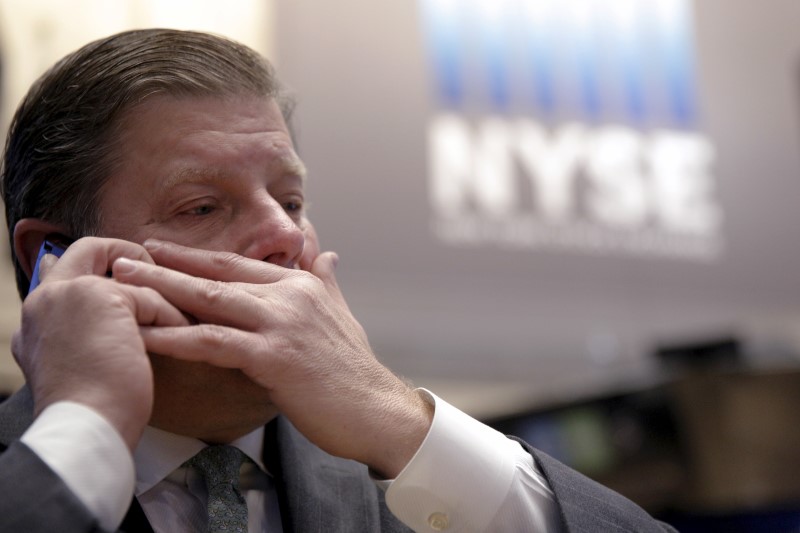This post was originally published on this site
https://i-invdn-com.akamaized.net/news/LYNXMPEC070NC_M.jpg
Investing.com – A wave of late selling hit Wall Street Tuesday, leading to the Dow suffering its worst ever first quarter amid worries the widely-expected recession in the U.S. may be worse than feared as the Covid-19 pandemic intensified.
The Dow fell 1.8%, taking its losses for the quarter to 23%, its steepest first-quarter decline on record. The S&P 500 slipped 1.6% and the Nasdaq Composite fell 0.95%.
The U.S. reported nearly 11,000 new Covid-19 cases since Monday, taking the total to about 174,000, with about 3,400 dead so far, following a spike in infections in New York, the epicenter of the outbreak in the U.S.
In New York state, coronavirus infections jumped 14% overnight to 75,795, with Gov. Andrew Cuomo conceding that the virus is more dangerous than expected.
“I’m tired of being behind this virus. We’ve been behind this virus from day one,” Cuomo said. “We underestimated this virus. It’s more powerful, it’s more dangerous than we expected.”
With little end to sight to the pandemic, Wall Street has warned of an even gloomier economic backdrop despite growing expectations Congress and the Federal Reserve will ensure the well of stimulus remains deep.
“With interest rates for the United States being at ZERO, this is the time to do our decades long awaited Infrastructure Bill,” President Donald Trump tweeted today.
“It should be VERY BIG & BOLD, Two Trillion Dollars, and be focused solely on jobs and rebuilding the once great infrastructure of our Country! Phase 4,” he added.
Goldman Sachs (NYSE:GS) now expects real U.S. gross domestic product to shrink 9% in the first quarter and 34% in the second three months of the year, on an annualized basis, compared with a previous forecast for falls of 6% and 24% respectively. The investment bank said, however, it expected gradual recovery in output to get underway in May or June.
Against the growing expectation of economic doom, Trump is expected to announce a three-month delay to tariff payments of some imported goods, Bloomberg reported. The order, however, will not include a reprieve on levies imposed on Chinese goods nor on aluminum and steel imports.
“The order, which could come as soon as this week, would give the Treasury Department the authority to direct Customs and Border Protection to delay collecting tariffs on those imports for 90 days,” according to the report.
Defensive corners of the market like real estate and utilities led the market lower as investors positioned their portfolio for the quarter-end.
Energy, however, proved an exception to the decline, rising 1.82%, though had been up more than 3% earlier, on growing hopes Saudi Arabia and Russia may call a truce on their price war in an effort to stabilize the market.

